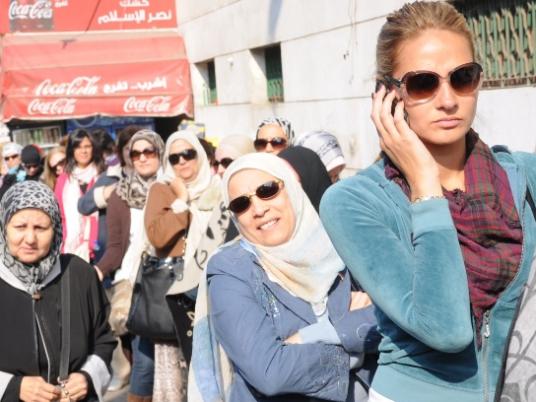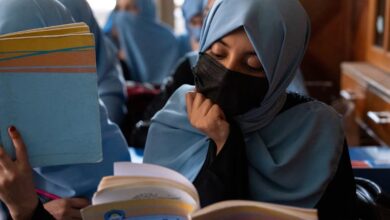
In the past 20 years the world's women and girls have made significant progress in health, education and legal rights but wide gender gaps remain in economic participation, political leadership and security, according to research released Monday.
An aggregation and analysis of global data drawn from a host of international agencies, including the World Bank, the World Health Organization, various UN agencies and polls, the research identifies gains and gaps in women's progress towards gender equality since 1995.
That year 189 nations at the UN Fourth World Conference on Women signed the landmark Beijing Declaration and Platform for Action calling for the "full and equal participation of women in political, civil, economic, social and cultural life."
The "No Ceilings Full Participation Report" is the result of a year-long global project led by the Bill & Melinda Gates Foundation and the No Ceilings initiative of the Bill, Hillary & Chelsea Clinton Foundation. Its launch coincided with the start of the 59th session of the United Nations' Commission on the Status of Women.
"This report shows that progress is possible–and that more work remains," former U.S. Secretary of State Hillary Rodham Clinton said in a statement launching the report.
The data provide evidence that when women and girls participate fully, the positive effects create a ripple effect that increases well-being in communities, growth in economies and security in nations, the report said.
Among the most positive findings were those in health, edcuation and legal rights.
Due to improvements in access to health care services, girls born today can expect to live an average of almost 73 years, about four more years than in 1995, the report said.
The rate of global maternal mortality dropped by 42 percent in 20 years; the mortality rate for infant girls decreased by half and adolescent births fell by almost a third.
More work needs to be done, however, in reducing HIV infections in women, which are nearly double the number in 1995, particularly among adolescent and young women. Also, more than 220 million women around the world want to use modern contraception but often lack access.
In education, the report found that the global gender gap among primary school-age children has "virtually closed." But in secondary school, considered an important factor in girls' ability to avoid child marriage and contribute to their families and communities, the gender gap has narrowed but is still there; it is particularly wide in Sub-Saharan Africa and South Asia.
In terms of legal rights, more than 95 percent of the 56 national constitutions adopted after 1995 guarantee gender equality, compared with 79 percent in 1995. By 2013, 76 of 100 countries had passed laws against domestic violence, compared with 13 in 1995.
Security is an area of great concern for women. Violence against women "remains a global epidemic." Implementation and enforcement of laws protecting women are often lacking and laws restricting women's rights still exist, the report found.
Lack of progress is also worrying in women's economic participation, which has virtually stagnated since 1995, with 55 percent of women in the workforce compared with 82 percent of men. Often working in the informal economy, women still earn less than men in almost every country.
More than 150 countries lack laws guaranteeing equal access to capital and property ownership while nine nations legally restrict women's freedom of movement.
Although twice as many women hold political office now as in 1995, their political participation has grown relatively slowly. Women hold 22 percent of seats in national legislatures, an increase from 12 percent 20 years ago. They also still are significantly rare in formal peace processes, where only 10 percent of peace negotiators are women.
"Data is knowledge and knowledge is power–in this case, the power to help women and girls build a better future," Melinda Gates, co-founder of the Gates Foundation, said in the preface to the report.




